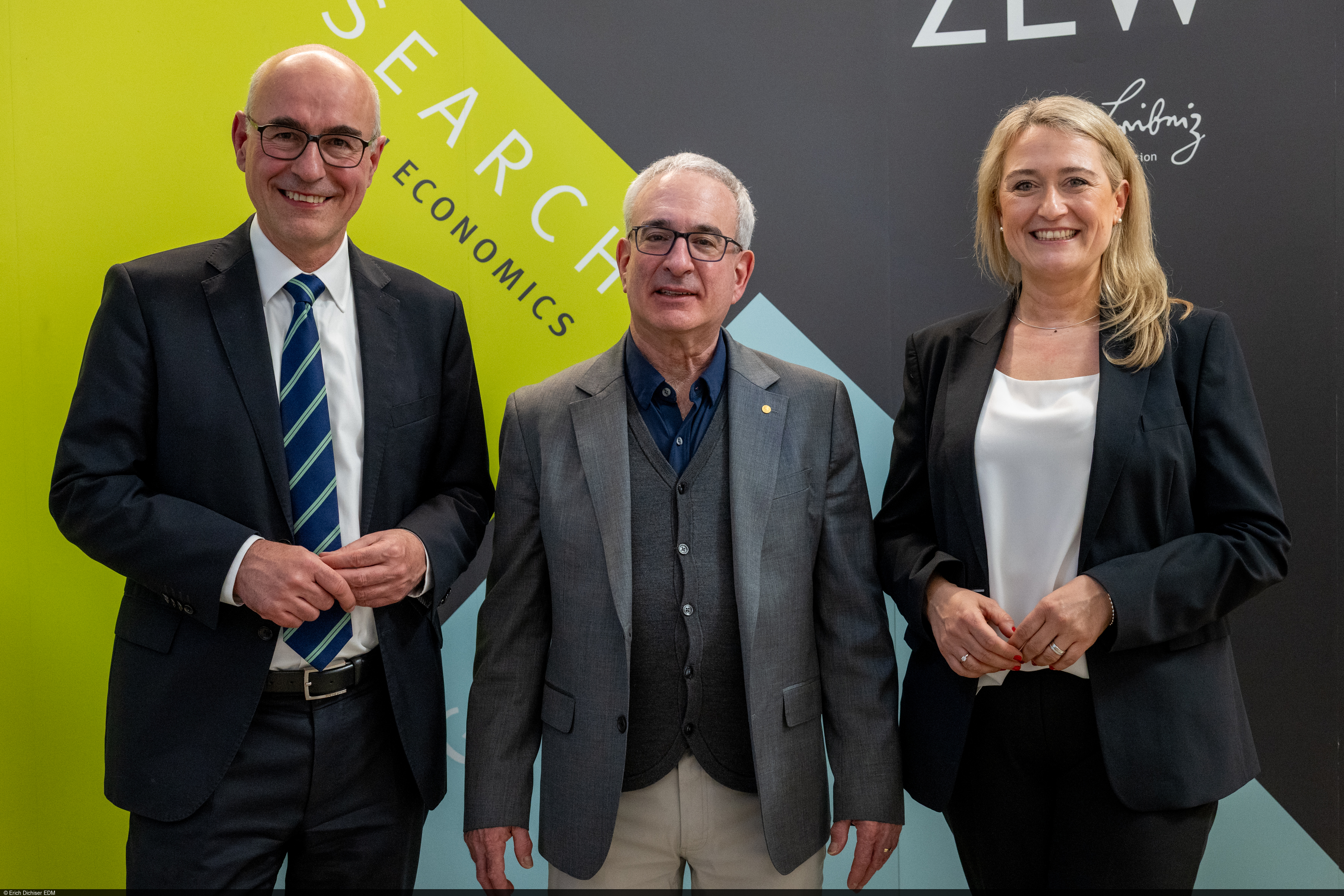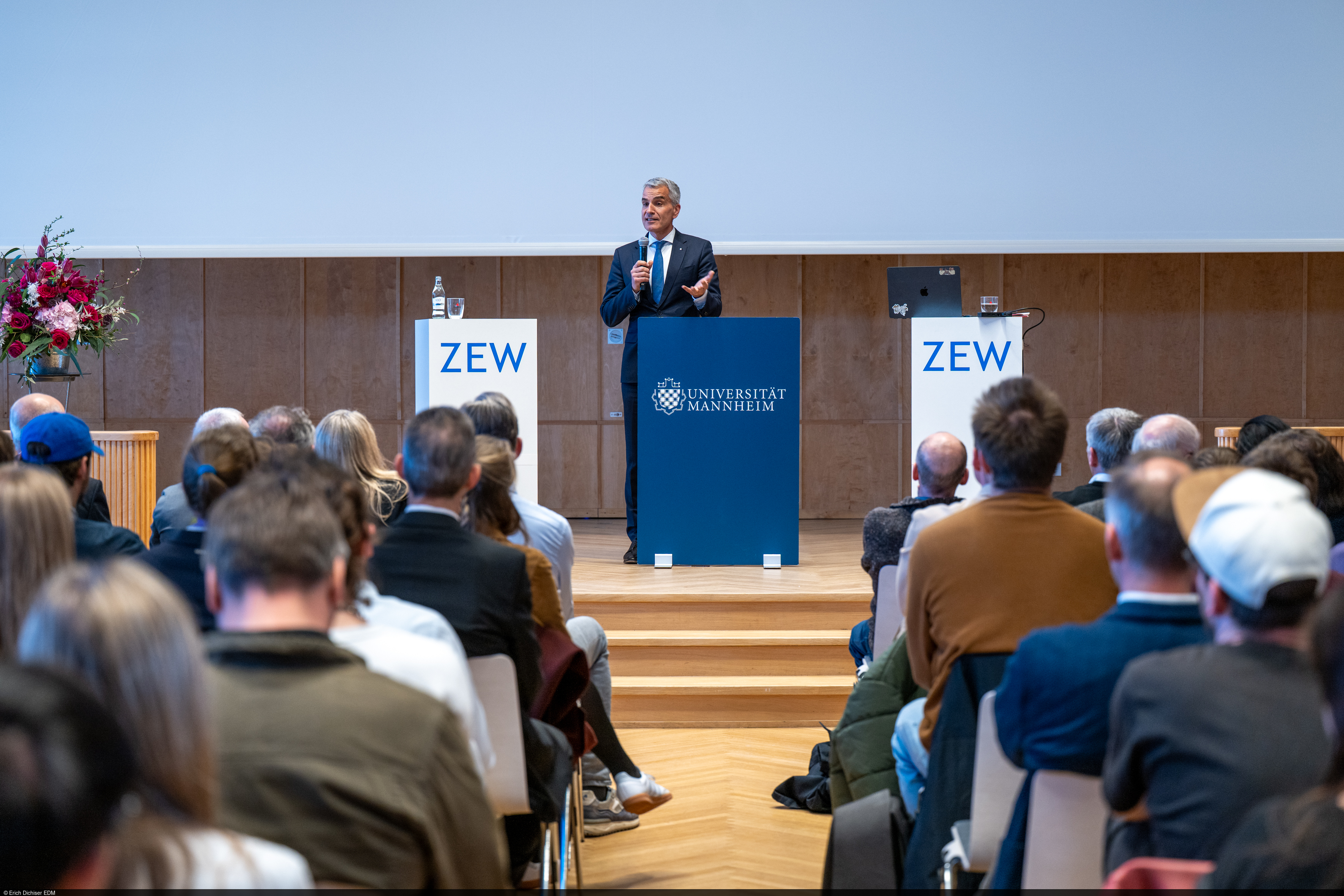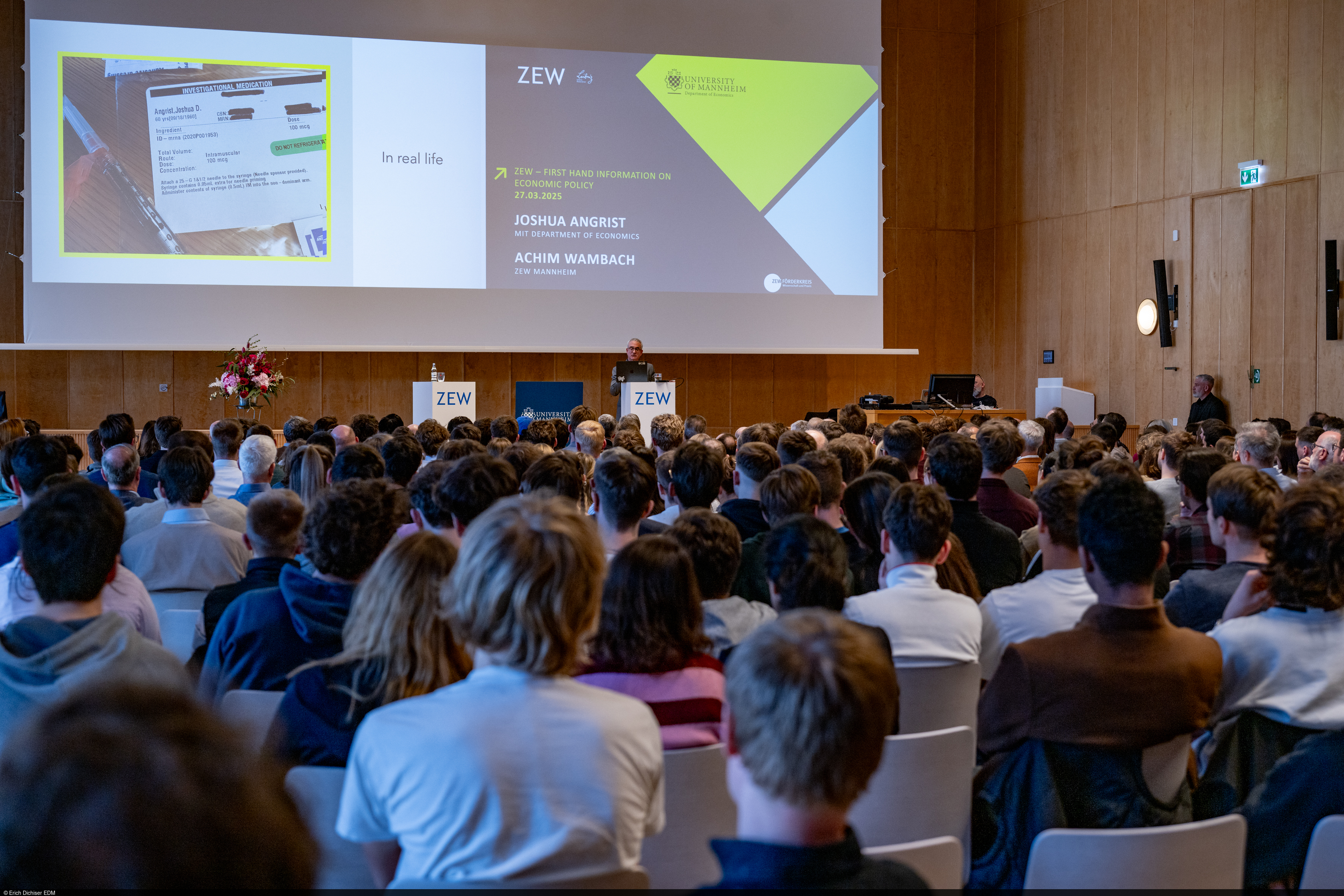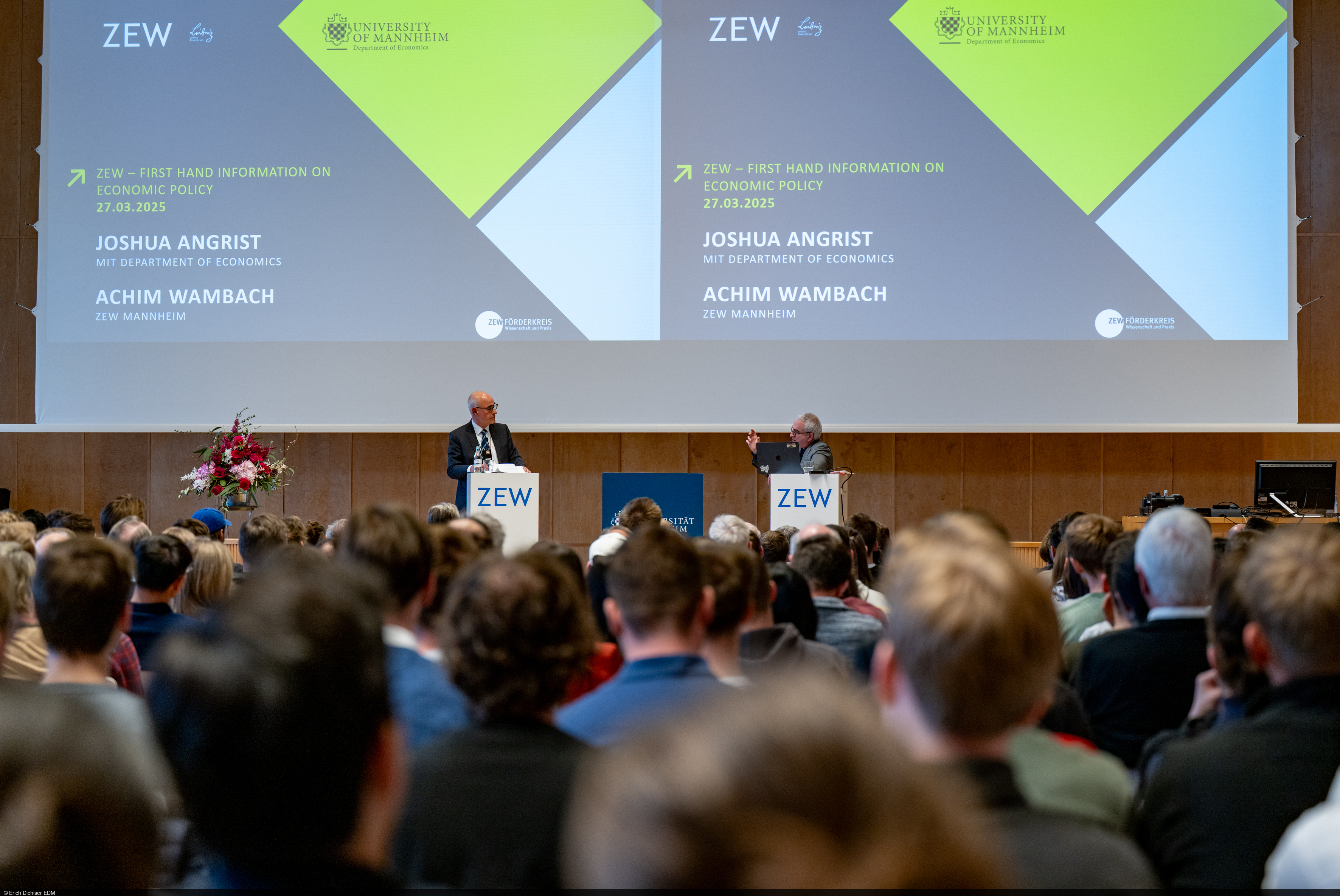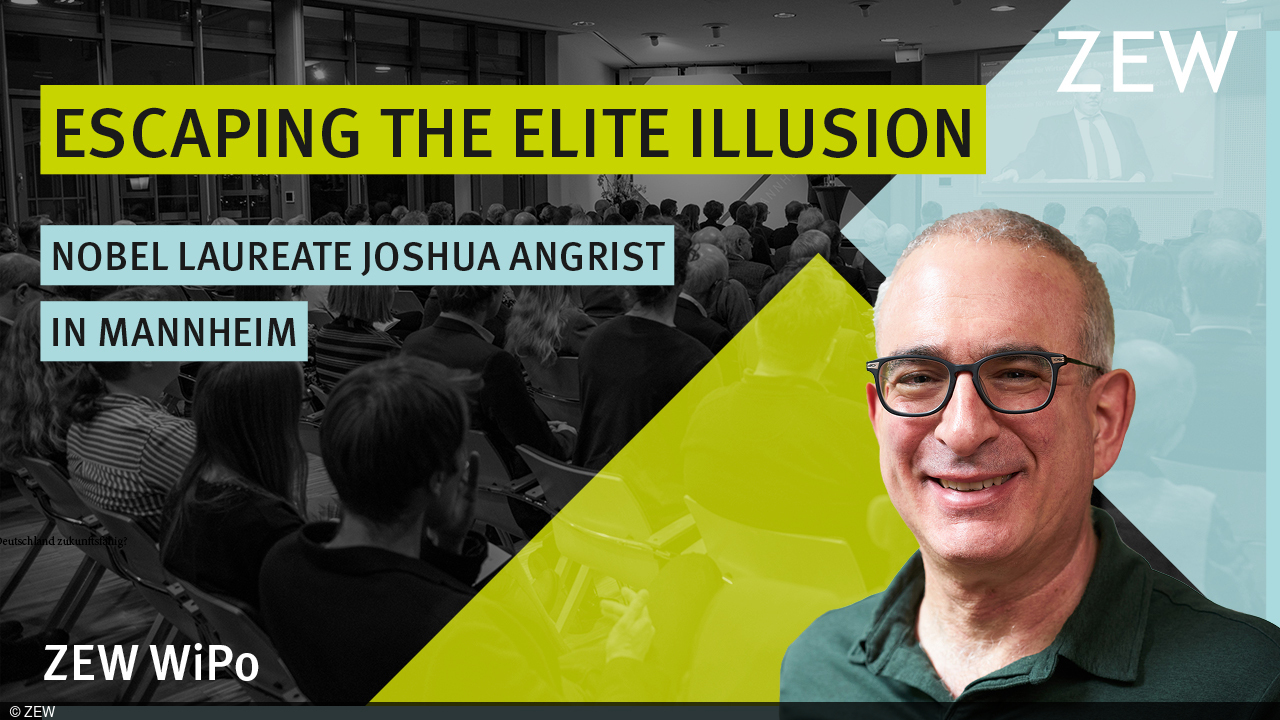Nobel Laureate Joshua Angrist Debunks the Elite Illusion
Public EventsJoshua Angrist at ZEW’s “First-Hand Information on Economic Policy” Event
Elite schools and universities have a magical attraction for many people. Strong networks, excellent teachers, supposedly better career opportunities and a high reputation are the reasons why many young people compete for the few, coveted places. But does attending an elite institution really get your further in life? This question was discussed by Joshua Angrist, Nobel Laureate in Economics and Ford Professor of Economics at the Massachusetts Institute of Technology (MIT), and ZEW President Professor Achim Wambach, PhD at a talk on 27 March, which was part of ZEW’s “First-Hand Information on Economic Policy” event series. The event was supported by the ZEW Sponsors' Association and organised in cooperation with the Department of Economics at the University of Mannheim. It was held at the University Aula, which was at full capacity with 400 guests.
Angrist, who was awarded the 2021 Nobel Memorial Prize in Economic Sciences, began with his multi-faceted lecture on “Escaping the Elite Illusion”. Debunking the myth that attending an elite educational institution automatically leads to economic success, he showed why many parents make enormous sacrifices to send their children there – and how we should not be deceived by this “elite illusion”.
Students themselves are more important than the school
He said he himself was very happy to teach at MIT and knew that it takes an enormous effort to be accepted as a student at the Institute. Therefore, he once asked himself and his students whether MIT graduates are successful because they went to MIT. Many students answered in the affirmative but learnt from him that this is an illusion – the so-called elite illusion.
Although it was true that alumni of elite universities and schools later earned more than those from state institutions, this was not due to the quality of the institutions but to the students themselves, explained Angrist. To be accepted by elite institutions, difficult entrance exams had to be passed. As a result, only applicants with above-average performance obtained one of the coveted places.
Correlation is not causation
To examine this, Angrist compared the performance of people who had only just passed the entrance exam for an elite institution with those who had narrowly failed to clear the hurdle. This resulted in two groups with a de facto comparable level of performance. While one group attended private elite institutions, the other went to public educational institutions. When the subsequent career paths were examined, both groups were found to be working in similar positions, including in terms of salary. According to Angrist, this shows that although there is a correlation between attending an elite institution and later success, there is no causal relationship.
Econometrics makes the difference
For Angrist, his econometric approach makes the difference. It enables you to test assumptions and debunk illusions, he said. Achim Wambach also addressed econometrics in the subsequent in-depth discussion: You had to know which variables were the right ones, but this also required a great deal of discipline to pursue.
The discussion also touched on Angrist's life since winning the Nobel Prize: Had he become a public intellectual? No, Angrist replied. Although he had received more media requests, he continued to comment only on his work and not on topics outside his field. After all, he had not changed careers after winning the Nobel Prize.

